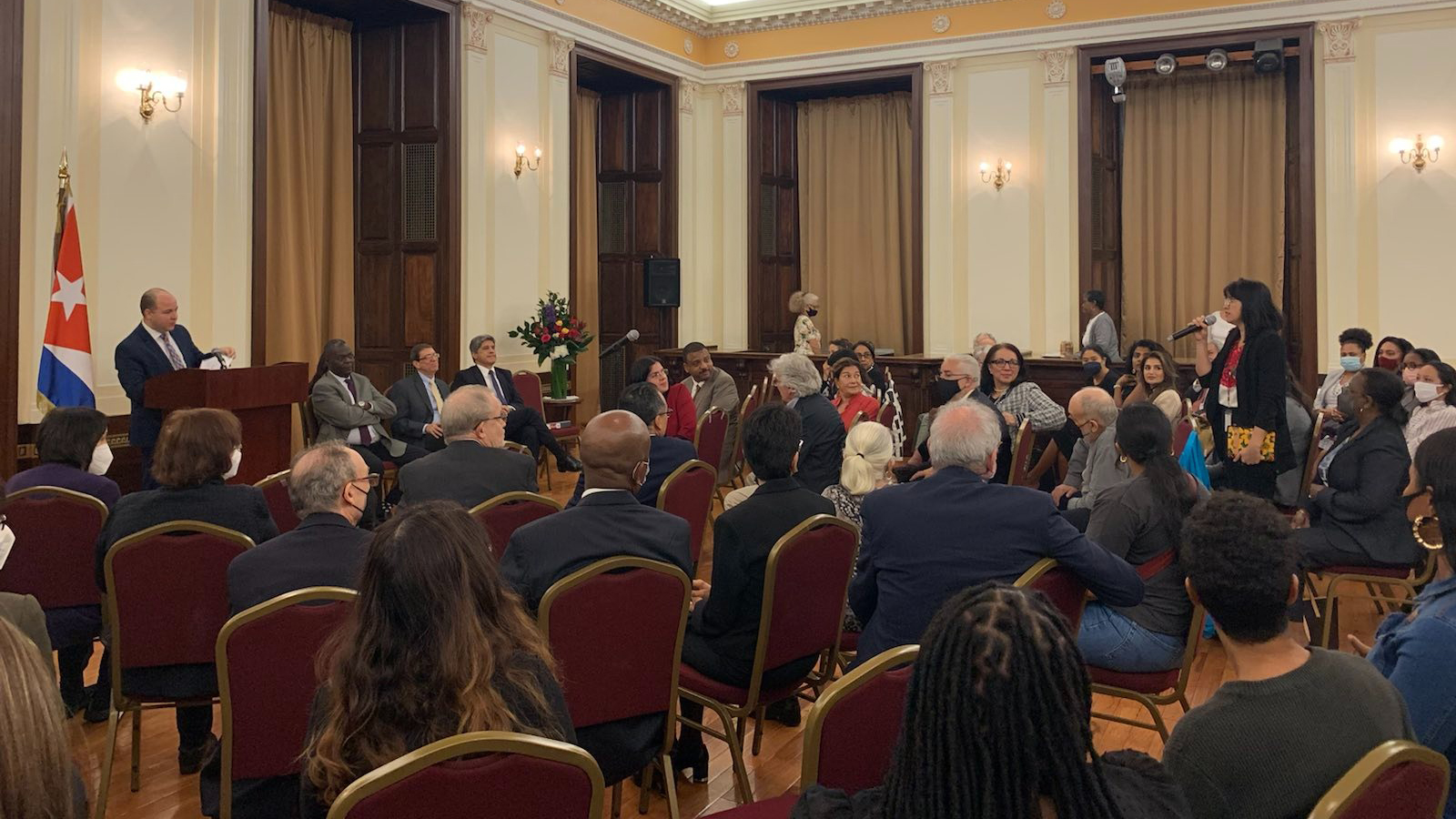The people of Cuba approved their new Family Code on September 25, now the most progressive code of families in the world. With 74.01% of eligible voters participating, the Family Code passed in a landslide victory. 66.87% of participants voted in favor of the new code and 33.13% voted against.
On September 27, the Cuban mission to the United Nations hosted US scholars, activists, union leaders, lawyers, journalists and judges in order to share the Cuban experience in winning and ratifying their new Family Code. People in the US were able to dialogue directly with Cuban officials, and many expressed their admiration for the victory.
The “Code of Freedom”, as Cuban foreign minister Bruno Rodriguez described the Family Code on September 27, now grants same-sex couples the freedom to marry and adopt. The code also redefines the legal concept of “family” around not only consanguinity, but also affinity ties, broadening the definition of a family and making it more inclusive. The code makes enormous progress in its recognition of the rights of children, outlawing child marriage and corporal punishment, stating that parents will be granted “responsibility” instead of “custody” of children, and will be required to be “respectful of the dignity and physical and mental integrity of children and adolescents.” This is outstanding especially in the Latin American context, in which half of all children experience corporal punishment and a fourth of all girls enters into a marriage or early union before the age of 18.
Many present expressed astonishment at the achievement of the Cuban people, particularly around the period of “popular consultation” in which the Cuban government engaged directly with the people in developing the Code. Abortion rights activist Karina Garcia said, “I know we don’t have anything like that in [the US].”
During the process of popular consultation, Yusnier Romero Puentes, deputy permanent representative of Cuba to the United Nations, told guests that the process of popular consultation has its origins during the nation’s first constitutional referendum in 1976. Much like in 1976, during the popular consultation process for the Family Code, the Cuban government organized local public assemblies in which members of the public asked questions of specialists, debated drafts and made proposals. Over 400,000 proposals were made by the Cuban people during these discussions. There were 225 amendments made to the 25th draft of the Code, which were generated by the popular discussions. Half of the code was changed as a result of the popular consultations. The draft that was submitted to the referendum was the 26th draft, a direct result of dialogue between the government and the people.
Many of those present expressed their astonishment at how Cuba, as evidenced by the landslide victory of this code, seems to have overcome the legacy over 500 years of patriarchal colonialism that the Americas still struggles under. “It’s important to understand that this did not happen overnight,” replied the Deputy Minister of Foreign Relations, Carlos F. de Cossio. Over time, the revolutionary process that began in Cuba in 1959 has won many achievements in defeating patriarchy and colonialism. Over half of all seats in the Cuban parliament are held by women, and by law, women are paid equal pay for equal work. In 2008, the ban on gender affirming surgery was lifted, and now transgender Cubans can access this surgery entirely for free. Cuban foreign officials indicated that the over 60 years of revolution has shaped the consciousness of the Cuban masses.
Kerbie Joseph, a community organizer with New York-based LGBTQ group the Audre Lorde Project, appreciated the insights that Cuban officials shared about consciousness-raising. “The Cuban government made it their priority to make sure that the Cuban people were involved,” Joseph told Peoples Dispatch. “They did everything that they had to do to make sure that participation was not only mandatory, but accessible and a priority.”





